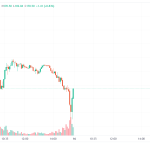Trading requires not only a solid understanding of the market but also the ability to manage one's emotions, maintain discipline, handle various pressures
Why Many Traders Fail - Key Factors and Statistics
1. Options for Trading Implementation
Managing Someone Else's Money
Many traders start by managing funds for others because they may lack the initial capital needed to trade on their own. This approach involves attracting investors such as family, friends, or external investors who are willing to provide capital for trading. In exchange, the trader typically earns a fee or a percentage of the profits generated from the investments.
Benefits:
- Access to Capital: Traders can begin trading without needing personal capital, which allows them to start gaining experience and potentially achieve returns.
- Learning Opportunity: Managing external funds can provide practical experience and help traders refine their strategies under real market conditions.
- Networking: Success in managing others' money can lead to increased opportunities through referrals and a larger network of potential investors.
Challenges:
- High Pressure: There is significant pressure to perform well, as poor performance can impact relationships and the trader's reputation.
- Accountability: Traders must manage expectations and be accountable for their performance, which can be stressful.
- Regulatory Concerns: Depending on the jurisdiction, managing other people's money may require regulatory compliance and certifications.
Self-Trading
Self-trading involves using one's own capital to make trades and investments. This approach is often chosen by traders who have saved enough to start investing or who have capital from other sources.
Benefits:
- Control: Traders have full control over their investment decisions and strategies.
- Personal Growth: Trading with one's own money can be a strong motivator and offers a chance for personal financial growth.
- Flexibility: Traders can choose their own trading style, risk tolerance, and investment horizon.
Challenges:
- Initial Capital Requirements: Traders need to have sufficient savings or earnings to start trading, which may not be feasible for everyone.
- Emotional Impact: Trading one's own money can be emotionally challenging, especially during periods of loss or high volatility.
- Risk of Loss: If trades do not go well, the trader stands to lose their own capital, which can have personal financial consequences.
2. Challenges and Filtering Out
Regardless of the trading method, all traders face several common challenges:
Patience, Persistence, and Perspiration
- Patience: Successful trading often requires waiting for the right opportunities and not reacting impulsively to market fluctuations. This patience can be difficult when markets are volatile or when immediate results are not seen.
- Persistence: Traders must persist through periods of loss and difficulty. The road to success in trading is often filled with setbacks, and the ability to keep learning and adapting is crucial.
- Perspiration: This refers to the hard work and effort required to continuously analyze markets, develop strategies, and stay informed about economic events and trends.
2.2. Unsupportive Market Conditions
Market conditions are not always favourable, and traders must navigate through periods of low liquidity, high volatility, or economic downturns. Adapting strategies to changing conditions is essential but can be challenging.
2.3. Internal Greed or Fear
- Greed: The desire for quick and high returns can lead to risky behaviour and poor Decision-Making. Greed can cloud judgment and cause traders to take on excessive risks.
- Fear: Conversely, fear of loss can lead to hesitation and missed opportunities. Overly conservative strategies might limit potential gains and prevent effective trading.
2.4. Lack of Discipline and Emotions
- Discipline: Maintaining a disciplined approach, sticking to a trading plan, and managing risk are crucial for long-term success. Without discipline, traders may deviate from their strategies and face unnecessary losses.
- Emotions: Trading can be highly emotional, and managing emotions like anxiety, excitement, and frustration is critical. Emotional decision-making often leads to errors and losses.
3. Filtering Out of Traders
The trading world is known for its high level of competition and difficulty. The fact that 13% of the 20% of traders get filtered out after the first stage highlights the challenges involved:
- Statistics: Only a small percentage of traders make it past the initial stages, largely due to the Psychological and practical hurdles they face.
- Adaptability: Many traders may not be able to adapt to changing market conditions or may struggle with emotional and psychological challenges.
- Continuous Learning: Successful traders often have a commitment to continuous learning and improvement, which helps them navigate and overcome difficulties that others might not.
Conclusion
Trading requires not only a solid understanding of the market but also the ability to manage one's emotions, maintain discipline, and handle various pressures. Both managing others' money and self-trading have their own sets of advantages and challenges. Ultimately, only a fraction of traders succeed in the long term, as many face insurmountable challenges and may choose to exit the field in search of other opportunities.
Leave a comment
Your email address will not be published. Required fields are marked *



